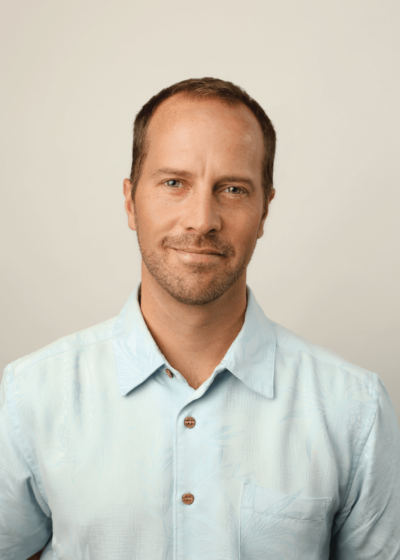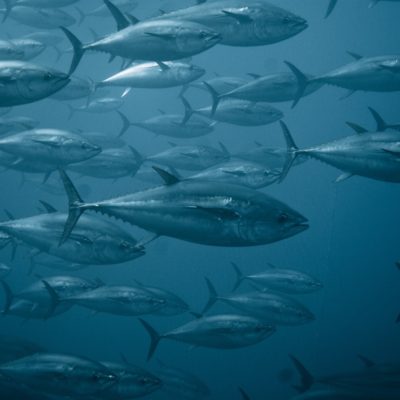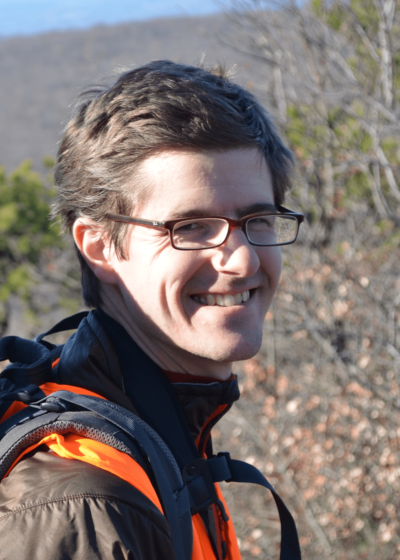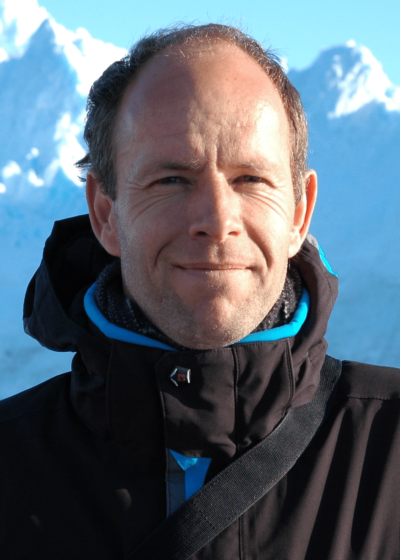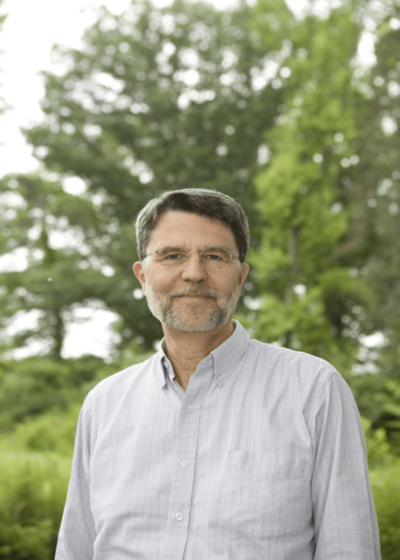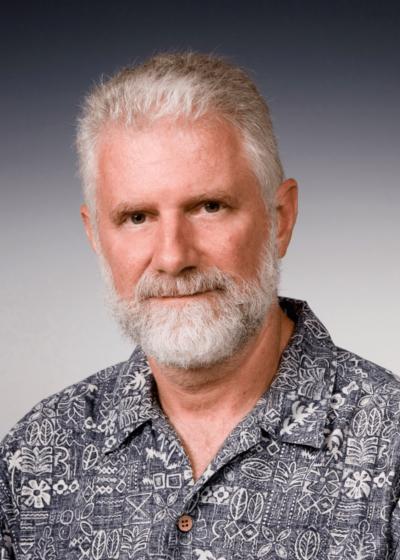People
Andre Boustany
Ph.D., Zoology
2011-2013 Senior Research Fellow (Duke University)
Research Scientist, Monterey Bay Aquarium
Andre Boustany is a research scientist at Duke University where he studies pelagic fish and fisheries with a focus on reducing bycatch and improving fishing efficiency. In addition to his research, Boustany also teaches classes in marine conservation and fisheries ecology and serves as a member of the Atlantic Highly Migratory Species Advisory Panel and the US ICCAT Advisory Committee, advising NOAA on domestic and international management of pelagic fishes in the Atlantic Ocean.
View More
Jack Kittinger
Ph.D., Geography
Center for Oceans, Conservation International
Professor of Practice, Arizona State University
Nexus Program Research Chair
Daniel Dunn
Ph.D., Marine Science & Conservation
University of Queensland
2011-2014 Junior Research Fellow (Duke University)
2014-2017 Senior Research Fellow (Duke University)
Senior Lecturer, School of Earth and Environmental Sciences (University of Queensland)
Research Scientist, Director CBCS
Daniel Dunn is a research scientist with the Marine Geospatial Ecology Lab at Duke University where he focuses on the conservation of marine biodiversity in areas beyond national jurisdiction, and dynamic management of marine resources. This work is driven by an interest in conservation biology grounded in pelagic ecology, biogeography and macroecology. To more directly address these issues at appropriate scales and over their full extent, Dunn works to bring science to bear on marine policy in areas beyond national jurisdiction.
View MoreHanson Hosein
MS, Journalism
University of Washington
Director, Communication Leadership Program
Hanson Hosein is a pioneer of creative entrepreneurship through communication technologies. As Director of the Communication Leadership program at the University of Washington since 2007, he has led a powerful graduate learning experience for professionals from around the planet. Hanson is a former NBC News war correspondent, backpack journalist and investigative producer, with Emmy and Overseas Press Club awards.
View MoreElsie Sunderland
Ph.D., Environmental Toxicology
Professor, Harvard University
Elsie Sunderland is an Associate Professor of Environmental Science and Engineering in the Department of Environmental Health at Harvard. Her research group studies the biogeochemistry of global contaminants. Her research includes developing models at a variety of scales, ranging from ecosystems to global applications, to help characterize the impacts of past and future changes in climate and environmental releases of contaminants on human and ecological health.
View MoreAndre Boustany
Ph.D., Zoology
2011-2013 Senior Research Fellow (Duke University)
Monterey Bay Aquarium
Andre Boustany is a research scientist at Duke University where he studies pelagic fish and fisheries with a focus on reducing bycatch and improving fishing efficiency. In addition to his research, Boustany also teaches classes in marine conservation and fisheries ecology and serves as a member of the Atlantic Highly Migratory Species Advisory Panel and the US ICCAT Advisory Committee, advising NOAA on domestic and international management of pelagic fishes in the Atlantic Ocean.
View MoreRyan Rykaczewski
Ph.D., Biological Oceanography
2011-2012 Senior Research Fellow (Princeton University)
Supervisory Marine Scientist, NOAA Fisheries, Hawaii
Assistant Professor, University of South Carolina
Ryan Rykaczewski, assistant professor at the University of South Carolina’s Marine Science Program and Biological Sciences program, focuses his research on the responses of ecosystem and fisheries production to past and future climate variability and climate change. This research involves consideration of theory, observations, and models. He holds a PhD from the Scripps Institution of Oceanography at the University of California, San Diego.
View MoreLaurie Chan
Ph.D., Diet and Health
University of Ottawa
Professor and holder of the Canada Research Chair in Toxicology and Environmental Health
Laurie Chan is a Professor and holder of the Canada Research Chair in Toxicology and Environmental Health at the University of Ottawa. His research interests focus on toxicology, environmental health, nutrition and the environment of indigenous peoples; chemical, biological and biochemical processes involved in the metabolism and toxicity of environmental and nutritional contaminants; effects of trace element deficiency; effects of contaminants in the ecosystem; and risk assessment.
View MoreLarry Crowder
Ph.D., Zoology
Professor, Stanford University
Larry Crowder is the Center for Ocean Solutions Science Director and Professor of Biology at Stanford University. His research centers on predation and food web interactions, mechanisms underlying recruitment variation in fishes, population and food web modeling in conservation biology, and interdisciplinary approaches to marine conservation. He has studied food web processes in both freshwater and marine ecosystems, and has used observational, experimental, and modeling approaches to understand these interactions in an effort to improve management.
View MoreDidier Gascuel
Ph.D., Ecology
Professor, Agrocampus Ouest
Didier Gascuel is a professor at Agrocampus Ouest and head of the Fisheries and Aquatic Sciences Centre. His current research focuses on the development of trophic-level-based ecosystem models and the implementation of ecosystem approach to fisheries management. He has been especially involved in programs dealing with the assessment of ecosystem impacts of fishing in Western African countries and in European seas. He notably developed the ECOTROPH ecosystem model and also worked on assessing the efficiency of marine protected areas.
View MoreMalin Pinsky
Ph.D., Biology
Associate Professor, Rutgers University
Malin Pinsky is an ecologist with a strong interest in marine communities and molecular tools. A key goal of his research is to aid in the conservation of marine ecosystems, both by pushing the boundaries of research and through training highly skilled scientists and communicators. His projects have included studies examining adaptation to climate change in temperate marine fish and fisheries, larval dispersal in coral reef fish to inform marine reserve design, and seal population dynamics in response to climate change and hunting.
View MoreQuentin Hanich
Ph.D., Fisheries Governance
Professor, University of Wollongong
Quentin Hanich leads the Fisheries Governance Research Program at the Australian National Centre for Ocean Resources and Security, University of Wollongong, and consults for international organisations and national governments on fisheries governance and marine conservation in the Pacific islands region. He has extensive project management experience in fisheries governance, marine conservation, and fisheries management and development.
View MoreChris McOwen
Ph.D., Marine Biology
2011-2014 Senior Research Fellow
Lead Conservation Scientist, UNEP-WCMC
Nexus Principal Investigator
Chris McOwen is a postdoctoral scientist working with the Marine team together with staff in the Department of Geography, University of Cambridge. He researchers a variety of aspects relating to marine capture fisheries. Specifically, Chris is exploring the drivers of fisheries production, considering a range of ecological, oceanographic and socioeconomic processes, so that future fisheries production can be predicted and marine ecosystems exploited sustainably.
View MoreAlex Oude Elferink
Ph.D., Law
Principal Investigator
Director at the Netherlands Institute for the Law of the Sea (NILOS)
School of Law (Utrecht University)
Alex Oude Elferink is the Director of the Netherlands Institute for the Law of the Sea. Oude Elferink is an expert on the law of the sea and the polar regions, the outer limits and delimitation of maritime zones, dispute settlement and the regime of marine areas beyond national jurisdiction.
View MoreCarl Folke
Ph.D., Ecological Economics/Natural Resource Management
Science Director & Chair of the Board, Stockholm University
Carl Folke is Science Director of the Stockholm Resilience Centre and the Director of the Beijer Institute of Ecological Economics of the Royal Swedish Academy of Sciences, one of the collaborating partners of the Stockholm Resilience Centre. Folke has extensive experience in transdisciplinary collaboration between natural and social scientists, and has worked with ecosystem dynamics and services as well as the social and economic dimension of ecosystem management and proactive measures to manage resilience.
View MoreCharles Stock
Ph.D., Civil, Environmental and Ocean Engineering
Princeton University, NOAA/GFDL
Geophysical Fluid Dynamics Laboratory
Charles Stock is a Research Oceanographer at the NOAA/Geophysical Fluid Dynamics Laboratory. His research interests are in marine ecosystem dynamics and physical-biological interactions over a broad range of space and time scales. The objective of his work is the production of quantitative predictions and projections of interactions between climate and marine ecosystems on time-scales ranging from seasons to multiple decades.
View MoreErik Molenaar
Ph.D., Law
Assistant professor, Utrecht University
Erik Molenaar is Deputy Director of the Netherlands Institute for the Law of the Sea (NILOS) at Utrecht University, with research interests in international fisheries law and the international law relating to the Antarctic and Arctic. Since late 2013 his research has a specific focus on participation, allocation and the ecosystem approach to polar fisheries.
View MoreHenrik Österblom
Ph.D., Marine Ecology
Professor, Stockholm University
Henrik Österblom is Deputy Science Director at Stockholm Resilience Centre. He holds a position as senior lecturer in environmental sciences with a particular focus on ecosystem-based management of the Baltic Sea. His primary research interests are 1) Social-ecological dynamics of the Baltic Sea, 2) International marine governance and 3) Seabirds and ecosystem change.
View MoreJorge Sarmiento
Ph.D., Geology
Princeton University
Professor, Emeritus, Director of SOCCOM Program
Jorge Sarmiento is the George J. Magee Professor of Geoscience and Geological Engineering, Professor of Geosciences at Princeton University. He has published widely on the oceanic cycles of climatically important chemicals such as carbon dioxide, on the use of chemical tracers to study ocean circulation, and on the impact of climate change on ocean biogeochemistry.
View MoreMike Bithell
Ph.D., Astrophysics
Professor University of Cambridge/WCMC
Mike Bithell is an Assistant Director of Research in Computing at the Department of Geography in the University of Cambridge. His research interests lie in numerical modelling of spatially distributed systems, including fluid flow, atmospheric physics, climate and its interaction with ecosystems, changes in land use and socio-economic processes.
View MorePatrick Halpin
Ph.D., Environmental Science
Professor, Duke University
Patrick Halpin is an Associate Professor of Marine Geospatial Ecology and Director of the Geospatial Analysis Program at the Nicholas School of the Environment, Duke University Marine Lab. Halpin’s research focuses on marine geospatial analysis, ecological applications of geographic information systems and remote sensing; and marine conservation and ecosystem-based management. Prof. Halpin leads the Marine Geospatial Ecology Lab at Duke University and sits on a number of international scientific and conservation program steering committees.
View MoreTom Spencer
Ph.D., Geography
Professor, University of Cambridge/WCMC
Tom Spencer is Reader in Coastal Ecology and Geomorphology and the Director of Cambridge Coastal Research Unit at the University of Cambridge. His research focuses on physical geography at the interface between geomorphology and the geological and biological sciences, with particular reference to coral reefs and associated ecosystems (seagrass, mangroves) and coastal geomorphology.
View More

